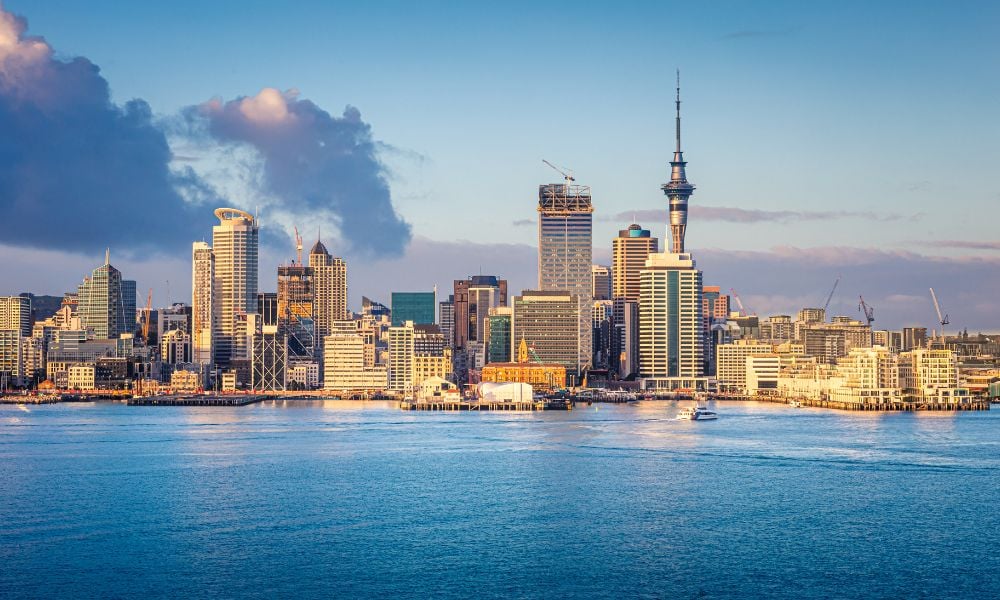Ockham boss slams housing rules holding Auckland back

High-profile Auckland developer Mark Todd has launched a scathing critique of New Zealand’s planning and building frameworks, blaming poor legislation and bureaucratic hurdles for undermining housing affordability and stalling progress on quality urban intensification.
In a candid interview with OneRoof following the New Zealand Green Building Council’s housing summit, the Ockham Residential founder said New Zealand has “opened the back door to the lowest common denominator” in housing — and is paying the price.
MDRS blamed for incentivising the wrong kind of development
Todd pulled no punches in criticising the Medium Density Residential Standards (MDRS), calling them “a disaster” that are incentivising expensive, poor-quality terraced housing over well-designed apartment living.
“It can take six to nine months or more to get resource consent for apartment projects,” he said. “Meanwhile, terraced-housing developers get a free pass… and build three $2m townhouses on a single section. This is nuts.”
Todd’s Meadowbank project, Koa Flats, took eight months to gain approval for 14 affordable apartments.
“That’s not best-practice use of urban land,” he said. “It only creates expensive housing.”
‘We’ve got a scourge of low-quality terraced housing’
Todd said Auckland — which remains “severely unaffordable,” according to the 2025 Demographia International Housing Affordability report — is being overrun with low-value terraced builds, even in traditionally high-quality areas.
“There’s no community, no on-site amenity,” he said. “It’s destroying hundreds of high-value sites that should be developed à la Koa Flats… The market doesn’t see it as good value for money.”
Building Code a bigger problem than the RMA
While the Resource Management Act often gets the blame for delays, Todd believes the real problem lies in the Building Code.
“The Building Code is the biggest issue for me. I routinely build six- to 10-storey buildings, and the code is an absolute regulation clusterf***,” he said.
There are no standard acceptable solutions for buildings above 10 metres, meaning all designs must be bespoke.
“Millions of dollars of costs on large buildings are just eaten up by consultants arguing over design parameters,” Todd told OneRoof.
Lack of progress blamed on vested interests
Todd said there’s been no effort from MBIE or MHUD to upgrade the code.
“All the big players with the money are in the property development sector – they’re not builders, they’re land developers… They have no interest in building quality compact cities,” he said.
“They’re in thrall to sprawl, and making the RMA a false bogeyman suits them too.”
Rating incentives needed to push development around transport hubs
Todd said councils should use rating tools to incentivise the right type of development.
“If we, as a community and a country, paid for the CRL rail networks that have created these high-value nodes, I think the Crown and the council have every right to demand development around those,” he said.
Todd suggested rating commercial or industrial land near train stations to make holding onto it less viable.
“When it’s sold, it will only be sold to a developer who has to develop in line with the Auckland Plan,” he said.
Infrastructure connection costs driving up prices
Todd also criticised the costs of connecting new buildings to water and power.
“I routinely spend between 5% and 8% of my construction budget just to turn on water and power,” he said. “Why would I be paying $17,000 plus GST for every new apartment to connect to the water?”
He called for connection costs to be waived in key housing zones and covered instead by existing users.
“Young people probably deserve to pay a lesser share than older, wealthier people,” he told OneRoof.
Sector outlook remains bleak
Todd said the development sector is at its most difficult point in nearly three decades.
“We’re entering our fourth year of low sales volume… House prices have become decoupled from incomes. It will take a long time for that gap to close incrementally,” he said.
Buyers held back by fear and global instability
Todd believes market fears, not just supply and demand, are holding buyers back.
“The world’s a very uncertain place. They’re fearing a recession… and with good reason,” he said. “International events of this year, 2025, at least left me feeling more unsure about the future than I was 12 months ago.”
New Zealand must welcome foreign capital
Todd said the previous government’s blanket ban on foreign investment was “a serious mistake.”
“We need to be open to foreign investment,” he said. “There’s just no way we can pretend we’re in Norway with North Sea oil. We need twice as many people living here to sustain first-world-standard transport and public infrastructure.”
A vision for higher-density urban living
Todd is currently developing a joint venture with iwi at the Unitec Carrington site, where 53 buildings and 1,100 apartments have already been consented.
“It’s been a tough sales environment, but we’re committed to building something of real international aspiration here – a stellar example of what high-density housing and community living can be,” he told OneRoof.



